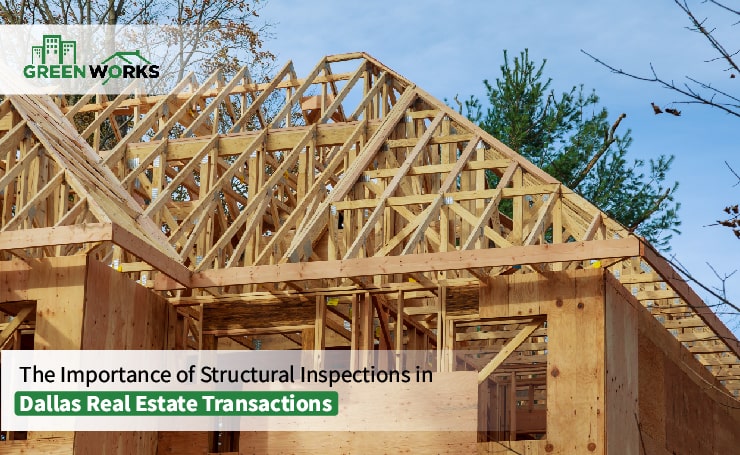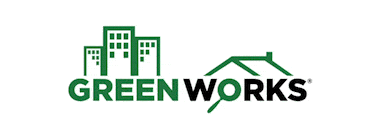Posts

The Importance of Structural Inspections in Dallas Real Estate Transactions
A thorough structural home inspection is a crucial step for Dallas property owners. It is the best way to assess the condition and integrity of their homes.
Structural engineers play a vital role in identifying and addressing potential issues related to the building’s structure. They are equipped with expertise and specialized knowledge, making the experience worth it.
In this blog, we’ll explore what is structural inspection and its role in ensuring safe, sound structures.
What Is A Structural Inspection?
It is ordinarily a visual inspection performed by a structural engineer. This inspection confirms the structural soundness of a home or building’s load-bearing components. These components include the foundation, joists, trusses, beams, and columns/posts.
It is done when a property owner has concerns about the structural stability of a building or structure.
This includes an analysis of the whole structure. At the same time, it can also include examining one specific building component.
Why Do We Need Structural Inspections?
Structural inspections have several benefits, making them important for real estate transactions. The following are some significant benefits of a structural inspection:
- It helps in determining a home’s structural integrity
- It can identify any work within the house that needs to be done
- It helps the homeowners navigate the price of their home
- You get a professional opinion on your home’s state
You should get a structural inspection when buying a damaged, older one, or a home you plan on renovating.
How Structural Inspections Help In Real Estate Transactions?
Revealing Hidden Issues
A thorough structural inspection uncovers any hidden structural problems that may not be obvious. This information is critical for buyers and sellers to understand the property’s true condition.
Negotiation Power
Buyers can get leverage for negotiation by uncovering structural issues uncovered during the inspection. They can request repairs, credit to address identified issues or price reductions.
Seller Disclosure
Sellers can demonstrate transparency by conducting a structural inspection and addressing any issues upfront. This then builds trust with potential buyers. It can also help in setting a fair asking price.
Legal Protection
A structural inspection can protect all parties involved from potential legal issues. The inspection report can be evidence if undisclosed structural problems arise after the sale.
This can tell that the issues were known during the transaction.
Financing and Insurance
Lenders often require structural inspections before approving a mortgage loan. Insurers may also consider the inspection report when determining coverage and rates.
This then ensures that the property is insurable.
Property Value
A clean bill of health from a structural inspection can enhance the property’s value. Sellers can expect a quicker sale and a higher selling price.
Signs You Need A Structural Inspection
Outside the Home
Exterior Walls
Often, structural issues show up on the home’s exterior walls.
Look out for bulging walls, cracked bricks, and mortar. Some cracks are minor, while others can lead to a foundation problem. The more cracks you see, the higher the probability is for the foundation to shift. It could be a serious concern if the outside and inside cracks can be seen simultaneously.
Exterior Foundation
There can be many signs of foundation issues where the house walls connect with the ground.
These can range from visible wall cracks near the ground to improper drainage. If you notice the earth pulling away from the house walls, that is also a red flag. Some soils absorb a lot of moisture. This leads them to expand in wet weather and shrink in the heat. Furthermore, cracks and soil pulling away from the house may indicate an improperly laid foundation.
For more precision, inspect the porch, deck areas, and patio. Soil pulling away from the posts and uneven floors or cracks in these outdoor spots are the other indications of shifting foundations.
Chimney
Inspecting the chimney is important, especially if it is built against the outside wall of the house. The most obvious signs of structural damage are the cracks in the bricks or mortar. Furthermore, cracks in the chimney indicate that the home is shifting. Also, this can mean that the house is putting excessive pressure on the bricks.
Crawl Space
When the soil expands and contracts, it experiences pressure from the foundation, concrete walls, and blocks. The crawl space will indicate signs if the pressure is wearing on the house. These signs can be dampness, leaks, and cracks in the walls. You shall also look for these signs in your basement.
Inside the Home
Windows and Doors
In areas where holes have been cut, the walls experience more risk from pressure.
Before the other parts of the walls, the areas around windows and doors often show signs of foundation structure damage. Some signs of problems are ajar doors and uneven gaps around the doors. Also, look out for nonworking locks on doors and windows.
Floors
Foundation shifts can also affect the flooring. Greater movement increases the likelihood of the floor showing structural flaws. You may notice that your house’s flooring is sagging, sloping, and bowing. There can also be cracks in the floor tiles.
Ceilings and Walls
One of the signs of shifting foundations is that your wallboard might be cracking.
At times, some settling is natural. But cracks can be an indication that there are some serious foundation issues. If you notice the cracks on the second floor, it is a significant sign of foundation issues.
You’ll want to look for corner cracks that extend outward from the corners of windows or doors. Horizontal and vertical cracks along the wallboard seams indicate this issue. Furthermore, cracks or deterioration in places where the wallboard has been taped together also signifies foundation issues.
Navigating Dallas Real Estate Transactions with Confidence
Now we understand what is structural inspection. And why do we need structural inspections? We’ve learned how it contributes to a smoother and more transparent real estate transaction process. It can help identify and address structural issues, enable informed decisions, and reduce the likelihood of post-sale disputes.
Both buyers and sellers benefit from the insights provided by structural inspections. Ready to ensure the safety and integrity of your property? Schedule your inspection with Greenworks Inspections today and make informed decisions for a secure future!



